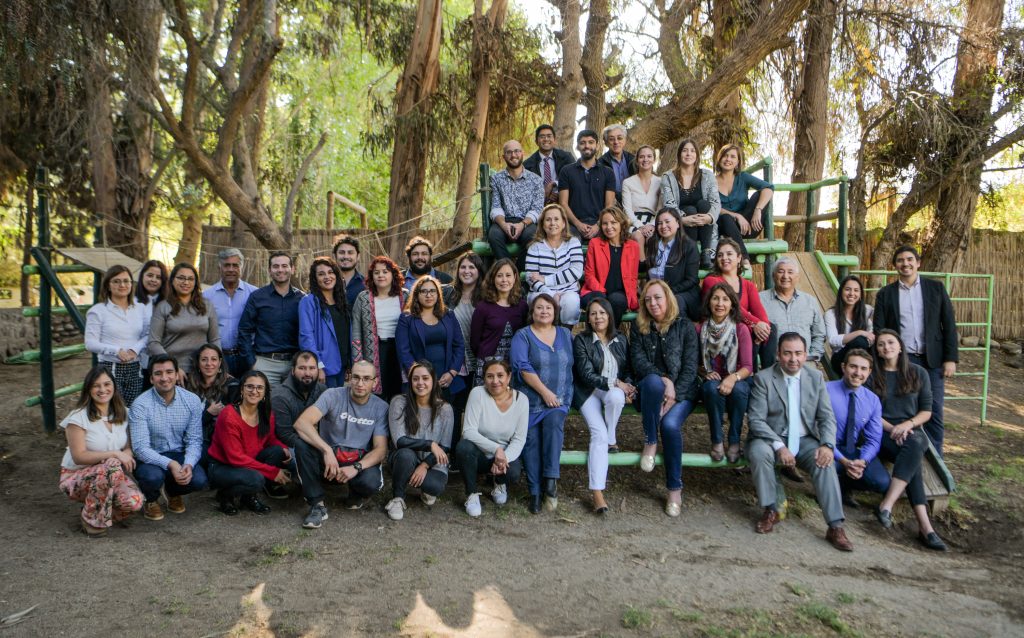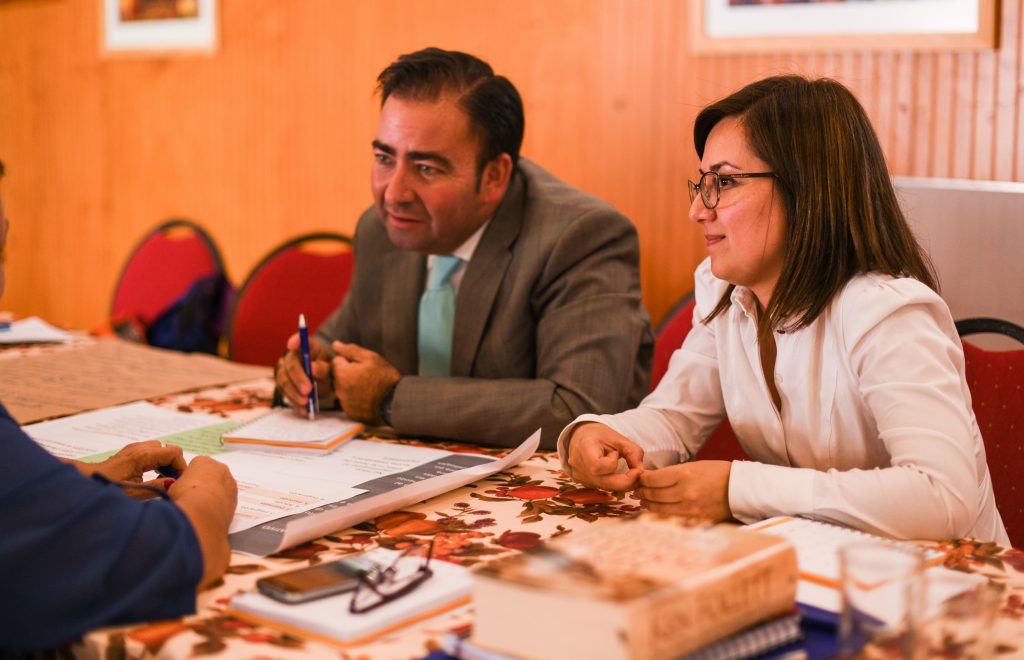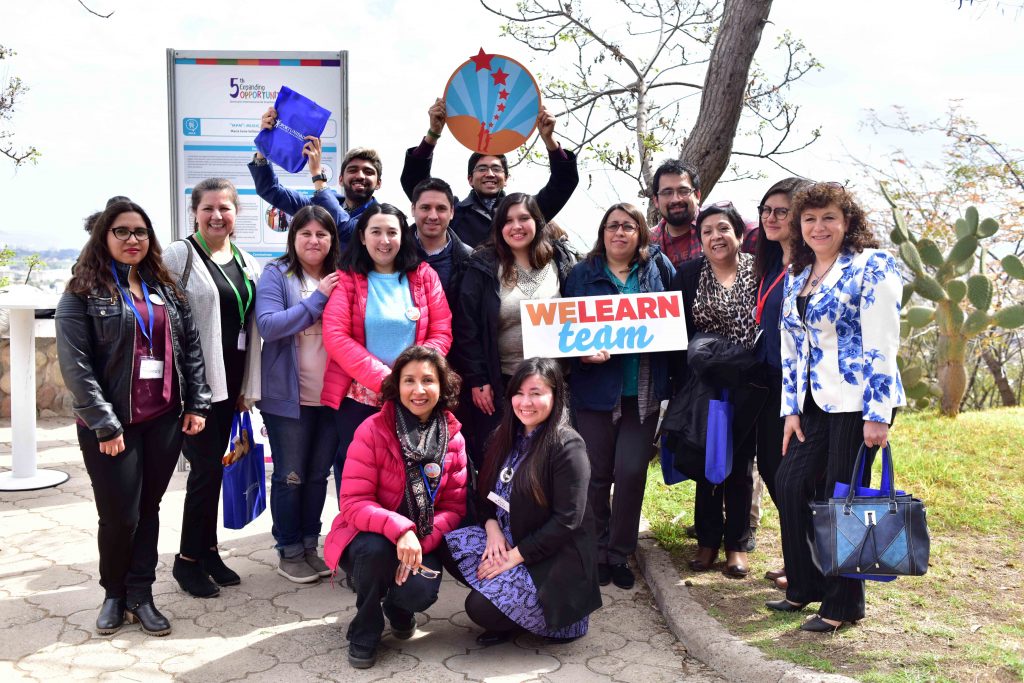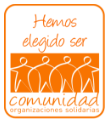Like most of the schools located in the Elqui Valley, the Ríos de Elqui School in Rivadavia and its more than 130 students were unable to follow an online modality to deal with the suspension of face-to-face classes, due to problems of internet connectivity and access to electronic devices. However, the teams have been able to overcome this difficulty by using the continuous improvement methodology promoted by We Learn, focusing on strengthening the collaborative network to reinforce English and adapt strategies, on the one hand, but also to enhance communication between the actors involved in the learning process.

"At the beginning, we didn't conceive the magnitude of what was happening".says Paola Díaz, head of UTP and interim principal for 2019. On 12 March, she says, the teams knew that face-to-face classes were going to have to be suspended and, although they didn't think it would be extended for so long, they established from the start that the material the school would provide would have to be physical: "We understood very well that, for our context, it was impossible for us to be able to carry out remote learning online like other establishments,", he explains.
Director Enrique Sirvent says: "The community was also taken a bit by surprise, until the first case appeared in Vicuña: it was no longer something far away that was seen on television. We even managed to have a family quarantined on suspicion.
The school in Rivadavia is 18 km inland from Vicuña and 7 km north of Paihuano. The geography of the area during this period has often worked against the learning process. Katherine Romero, a parent at the school, explains that her children have been affected by the crisis and have felt scared and sad about not being able to see their friends, but she has also had to deal with problems associated with where she and her family live: "Last week it rained and we spent a day without electricity and two days without internet: it is difficult to support our children in the teaching process, although this has also helped us to be more aware of the process.
The school immediately conducted a census, which showed that most of its students had access to the internet only through their parents' phones: it had to choose to implement a strategy within their reach. "We activated the collaborative network and agreed to design a remote learning plan with physical material distribution on a fortnightly basis".Enrique Sirvent explains.
"From the first delivery of material we started to apply the improvement cycle," explains Paola Díaz, "because there were many aspects to reinforce in this new modality.
"We began as a management team to study the new model and the methodology of continuous improvement came naturally. We were adapting to this new context and rethinking the bases for more effective work", says Enrique Sirvent.says Enrique Sirvent.

English teacher Bernardita Barraza points out that at the beginning, due to the format of the material, it was not easy to coordinate the model with her co-teacher Rose, a native speaker and Beyond English professional, because they immediately understood that it would be necessary to implement other strategies for the subject as well: "We began to realise that we had to be more concrete and concise, present the material differently and focus on topics that were more meaningful to the children.The teacher explains.
Paola Díaz adds: "With the first part we established the time that each teacher could allocate to their learning objectives, i.e. improving the modules per subject, the number of minutes per activity and adapting that time based on the material, understanding that as it is printed, it has many limitations.
From the second delivery onwards, feedback forms were included to receive feedback from students and parents, thus reinforcing communication with the educational community, but also so that students and parents could evaluate the learning process and generate improvements at home.
"In that material," says Bernardita Barraza, "We include questions related to the material, or about the things that have been most difficult for them to understand.
"In the third delivery we polished the physical material, but in subjects like English it was necessary to use other strategies, audiovisual material that we could publish on the school's Facebook page," says Enrique Sirvent.
This social network, they explain inside the school, plays an important role because most of the time it is free in the phone plans and they have promoted it as the official channel of information: "During this crisis, the school has been able to coordinate through Facebook the delivery of Junaeb boxes, capsules with tips from teachers, guides and information about the next shipments of material".Katherine Romero, the school's proxy, says.
"Even so, Bernadette explained to us that it was not enough for her subject".says Paola Díaz. "She bought a programme to edit videos and they started to create capsules and send them by WhatsApp and text message".
The main challenge for the teacher, having covered reading and writing comprehension, was to focus on oral expression. Thus, in order to strengthen oral expression, the teaching team began to coordinate - with the students who had the possibility - the sending of small capsules, obtaining good results.

"The use of social media has been fundamental".she says. "In order to implement the improvement cycle and not interrupt pronunciation, we developed the strategy of sending videos and considered phone calls for those who could not make it, with the aim of measuring progress, analysing the results in collaboration with the management team and incorporating them into the table of achievements".
Despite the distance, says Bernardita Barraza, working with the Beyond English professional has been a constant learning experience: "From the design of the capsule to the sending of the material, we do everything together with Rose and she has been extremely helpful. The next challenge is to implement a tongue twister competition: through a tongue twister and repetition, we want our students to not only practise their oral expression, but also to realise in a playful way what mistakes they make, until they feel ready to send it".
"Cathyen has really enjoyed the activities and videos".says Katherine Romero. "Whenever she can talk to her teacher, she tells her: 'Miss, send me more work or a comic book!'. It has been very important for her not to lose the rhythm of her learning process".
This initiative is part of the document "Educational communities: 6 stories of innovation in times of pandemic" which you can download in full at this link https://bit.ly/2DGXlJ6





